
Aberdeen: The Granite City with a Golden Heart
Aberdeen, known as the Granite City, is a unique blend of history, culture, and natural beauty. Nestled on the northeastern coast of Scotland, this vibrant city is famous for its striking granite architecture, which glitters silver in the sunlight. The rich history of Aberdeen dates back over 8,000 years, and it is reflected in its many ancient buildings and landmarks. Visitors can explore the medieval ruins of St. Machar's Cathedral, wander through the cobbled streets of Old Aberdeen, and marvel at the impressive Marischal College, the second-largest granite building in the world. Aberdeen is not just about its past; it is a lively and modern city with a wealth of attractions. The city's beautiful parks and gardens, such as Duthie Park and Hazlehead Park, offer a peaceful retreat from the urban hustle. The Aberdeen Maritime Museum provides a fascinating insight into the city's seafaring heritage, while the Gordon Highlanders Museum pays tribute to one of Scotland's most famous regiments. Art lovers will appreciate the Aberdeen Art Gallery, which houses an impressive collection of works from the Renaissance to the present day. The city's location on the edge of the North Sea means it has a strong maritime culture. Visitors can enjoy fresh seafood at one of the many local restaurants or take a trip to the bustling fish market. The nearby coast offers stunning beaches, such as Balmedie Beach, where you can enjoy long walks and breathtaking views. For those looking to explore further afield, the surrounding Aberdeenshire countryside is home to numerous castles, whisky distilleries, and scenic hiking trails.
Local tips in Aberdeen
- Visit in summer to experience the city's parks and gardens in full bloom and enjoy longer daylight hours.
- Wear comfortable shoes as the best way to explore Aberdeen is on foot, especially the cobbled streets of Old Aberdeen.
- Sample fresh seafood at local restaurants; Aberdeen is famous for its high-quality fish and shellfish.
- Check out the local events calendar as Aberdeen hosts several festivals and events throughout the year, including the Aberdeen International Youth Festival.
- Take a day trip to the surrounding Aberdeenshire countryside to explore castles, whisky distilleries, and scenic hiking trails.
Neighbourhoods in Aberdeen
Aberdeen: The Granite City with a Golden Heart
Aberdeen, known as the Granite City, is a unique blend of history, culture, and natural beauty. Nestled on the northeastern coast of Scotland, this vibrant city is famous for its striking granite architecture, which glitters silver in the sunlight. The rich history of Aberdeen dates back over 8,000 years, and it is reflected in its many ancient buildings and landmarks. Visitors can explore the medieval ruins of St. Machar's Cathedral, wander through the cobbled streets of Old Aberdeen, and marvel at the impressive Marischal College, the second-largest granite building in the world. Aberdeen is not just about its past; it is a lively and modern city with a wealth of attractions. The city's beautiful parks and gardens, such as Duthie Park and Hazlehead Park, offer a peaceful retreat from the urban hustle. The Aberdeen Maritime Museum provides a fascinating insight into the city's seafaring heritage, while the Gordon Highlanders Museum pays tribute to one of Scotland's most famous regiments. Art lovers will appreciate the Aberdeen Art Gallery, which houses an impressive collection of works from the Renaissance to the present day. The city's location on the edge of the North Sea means it has a strong maritime culture. Visitors can enjoy fresh seafood at one of the many local restaurants or take a trip to the bustling fish market. The nearby coast offers stunning beaches, such as Balmedie Beach, where you can enjoy long walks and breathtaking views. For those looking to explore further afield, the surrounding Aberdeenshire countryside is home to numerous castles, whisky distilleries, and scenic hiking trails.
When is the best time to go to Aberdeen?
Iconic landmarks you can’t miss
Dunnottar Castle
Clifftop fortress where Scottish crown jewels were hidden from Cromwell's army.
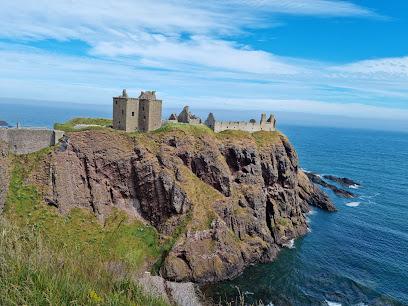
Stonehaven Harbour
Historic Stonehaven Harbour blends centuries-old maritime heritage with stunning coastal scenery and vibrant local culture.
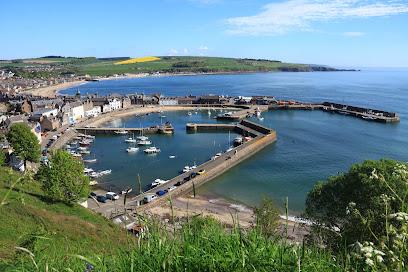
Footdee
A historic 19th-century fishing village frozen in time, where uniform cottages and maritime heritage create a unique urban escape.
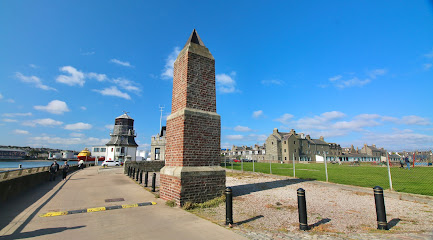
William Wallace Statue
A towering bronze tribute to Scotland’s freedom fighter, standing proud in the heart of Aberdeen with stirring words of liberty carved in stone.
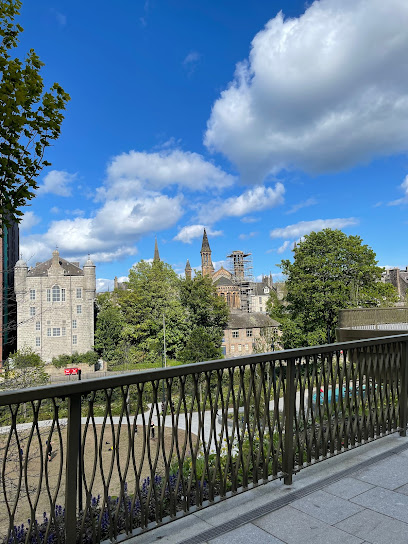
St Mary of the Assumption Cathedral, Aberdeen
Aberdeen’s Roman Catholic cathedral, a Gothic Revival gem with daily worship, Polish and Spanish Masses, and a peaceful Lady Chapel.
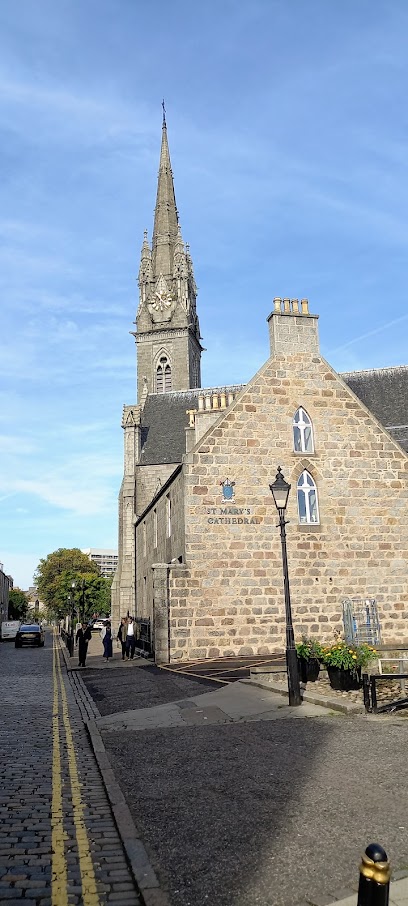
Bridge of Dee
A majestic 16th-century stone bridge in Aberdeen, blending medieval heritage with 19th-century engineering across the scenic River Dee.
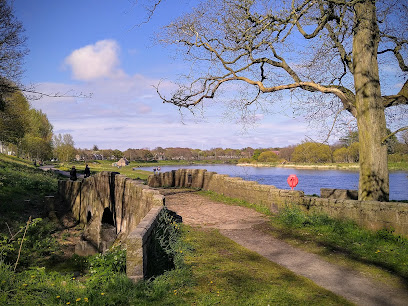
Piper Alpha Memorial Garden
A solemn bronze memorial honoring 167 lives lost in the world's deadliest offshore oil disaster.
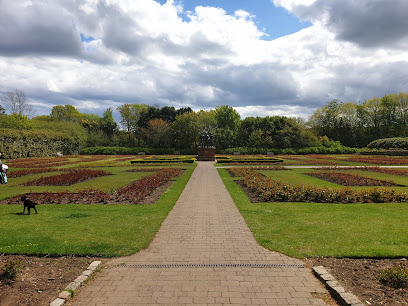
Marischal College
Scotland's second-largest granite building and an architectural masterpiece blending Victorian Gothic grandeur with civic purpose.
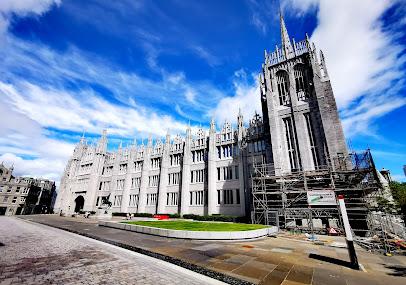
Old Slains Castle (Not Dracula castle)
Explore the haunting coastal ruins of Old Slains Castle, a 13th-century fortress steeped in rebellion and Scottish history.
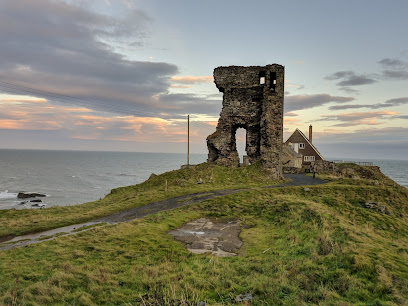
St. Andrew Cathedral Church, Aberdeen
Gothic grandeur and transatlantic heritage in Aberdeen's episcopal heart
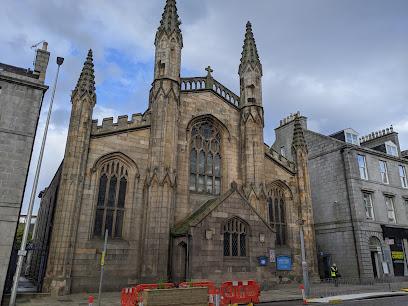
Duke Of Gordon Monument
Aberdeen’s granite tribute to the 5th Duke of Gordon, a pioneering statue in Scottish stoneworking history, now standing in Golden Square.
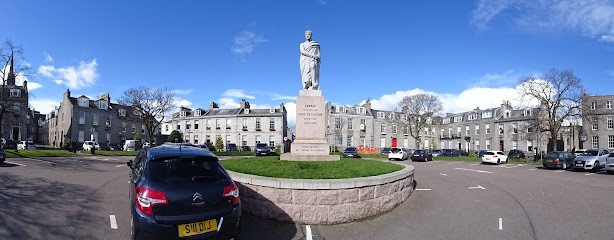
Edward VII Statue
Aberdeen’s grand Edward VII Statue stands in full ceremonial robes, a striking granite and bronze tribute to the British monarch at the heart of the city.
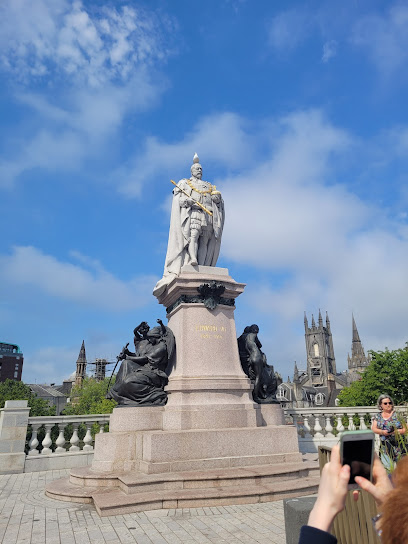
The Powis Gates
Twin towers of Turkish-inspired design, built with slavery compensation in 1834.
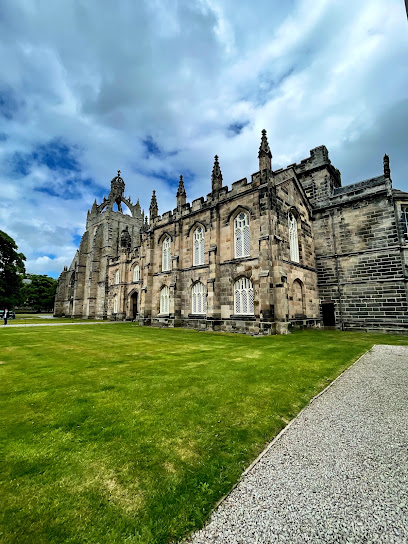
Barra Hill
Explore Barra Hill near Inverurie, an ancient hillfort and historic battlefield offering panoramic views and a deep connection to Scotland’s past.
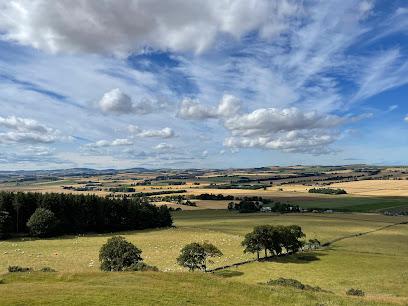
Greyfriars Church
Five centuries of faith and architecture in the heart of historic Aberdeen
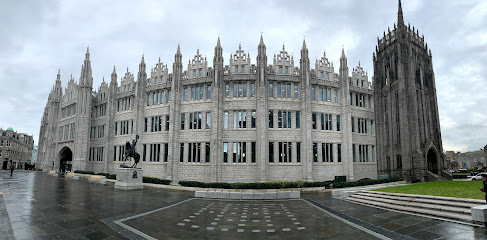
Unmissable attractions to see
Union Square
Union Square Aberdeen offers a dynamic blend of shopping, dining, and entertainment in a spacious, modern city-centre setting.
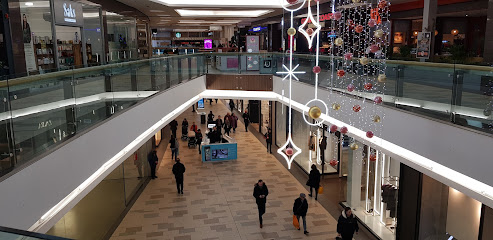
Bon Accord Aberdeen
Discover diverse shopping and vibrant city life at Bon Accord Aberdeen, the heart of retail on George Street.
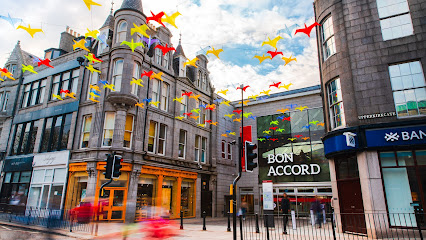
Duthie Park
A Victorian-era urban park in Aberdeen featuring the stunning David Welch Winter Gardens, family-friendly play areas, boating ponds, and lush green spaces.
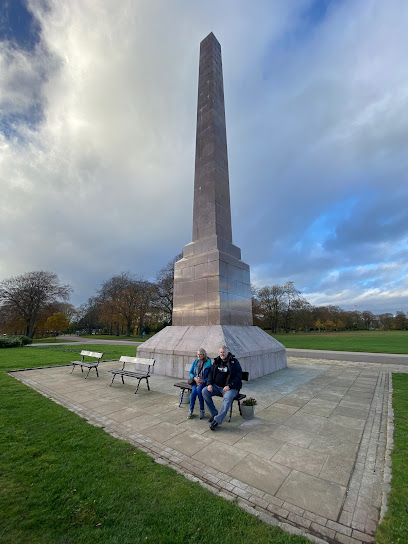
Crathes Castle
Explore a magnificent 16th-century Scottish castle and its enchanting gardens, blending history, nature, and family fun near Banchory.
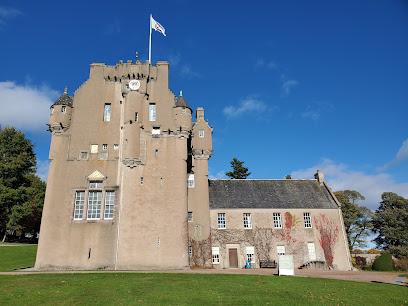
Hazlehead Park
Explore Aberdeen’s largest historic park with gardens, trails, golf, a petting zoo, and family-friendly fun in a sprawling 180-hectare green oasis.
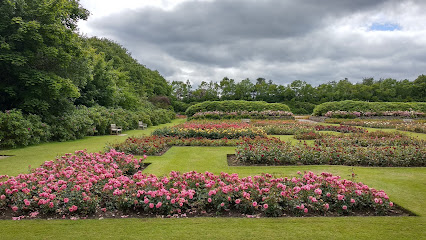
Aberdeen Maritime Museum
Discover Aberdeen’s rich maritime heritage through historic ships, oil industry exhibits, and stunning harbour views in this free, family-friendly museum.
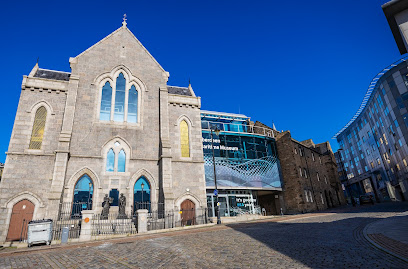
Seaton Park
Historic riverside park blending medieval architecture, ancient monuments, and family-friendly recreation beside St Machar's Cathedral.
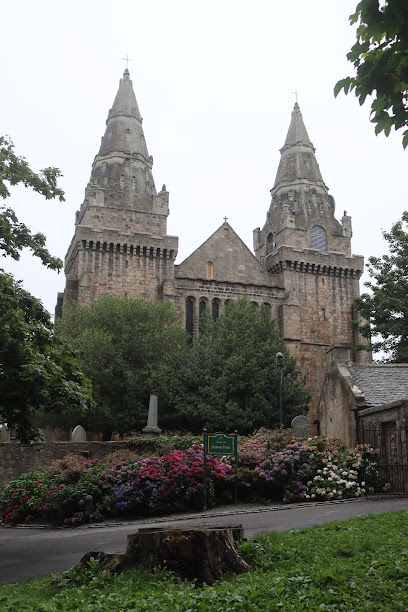
Peterhead Prison Museum
Step inside Scotland’s most infamous former jail for an immersive journey through crime, punishment, and history.
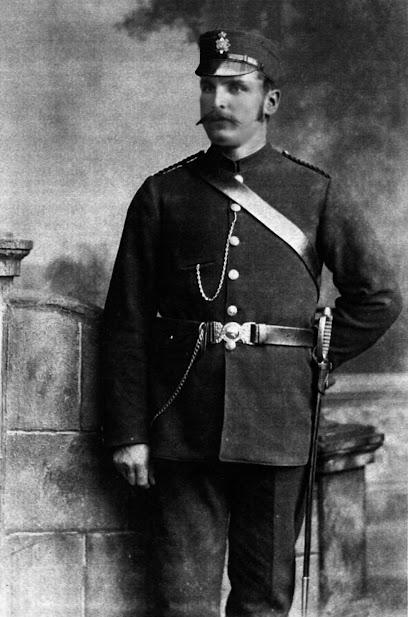
Castle Fraser, Garden & Estate
Explore one of Scotland’s grandest tower houses with secret staircases, vibrant gardens, and scenic woodland trails in Aberdeenshire.
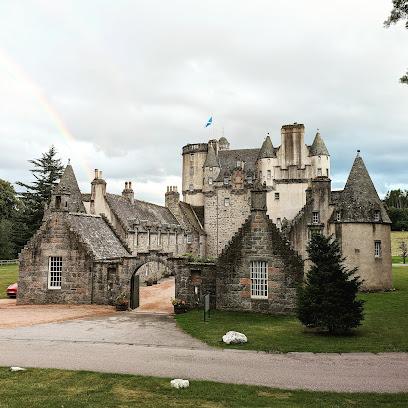
Aberdeen Art Gallery
Scotland's finest art collection in a stunning neo-classical building—free entry, world-class works, rooftop views.
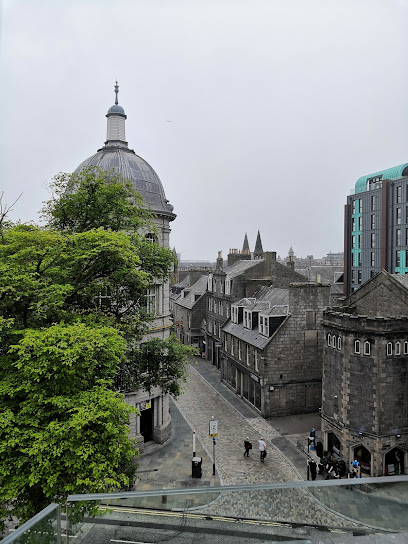
Drum Castle - Garden & Estate
Explore 700 years of Scottish history, stunning gardens, and ancient oak woodlands at Drum Castle, a timeless estate near Banchory.
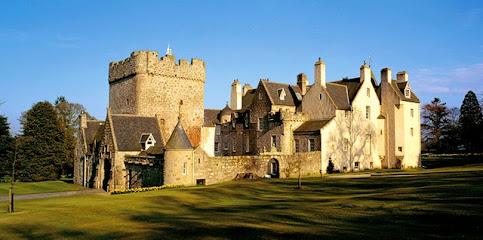
Aberdeen Beach
Golden sands meet vibrant entertainment on Scotland's celebrated North Sea shoreline.
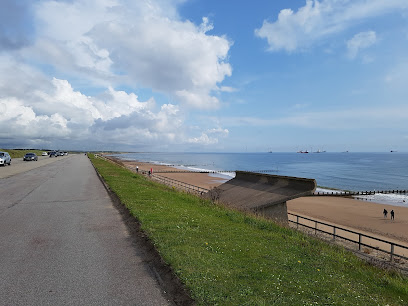
Donmouth Local Nature Reserve
A peaceful estuarine retreat in Aberdeen where river meets sea, rich in wildlife and scenic coastal views.
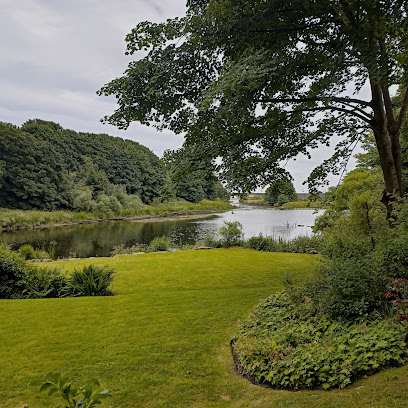
Westburn Park
A lively urban park in Aberdeen blending sports, nature, and community spirit with scenic streams and historic charm.
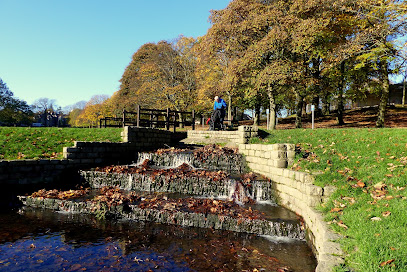
Grampian Transport Museum
Explore Scotland’s rich transport heritage with rare vehicles, interactive exhibits, and family-friendly fun in the scenic village of Alford.
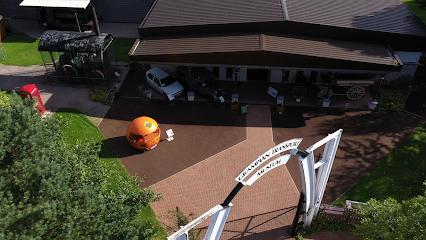
Essential places to dine
Miller & Carter Aberdeen
Savor expertly cooked steaks in a stylish, welcoming setting at Miller & Carter Aberdeen, perfect for special occasions and casual dining alike.
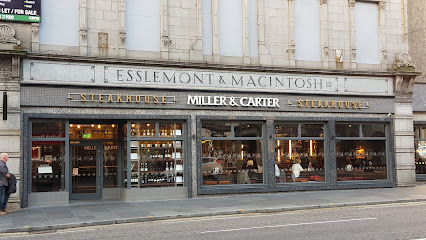
Cafe Andaluz
Experience vibrant Spanish tapas and lively Mediterranean atmosphere in Aberdeen’s city centre at Cafe Andaluz.
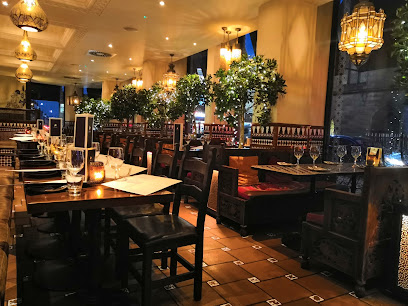
Brig O'Don Pub & Grill
A modern Aberdeen pub serving expertly flame-grilled dishes in a friendly, relaxed setting with welcoming service and family-friendly vibes.
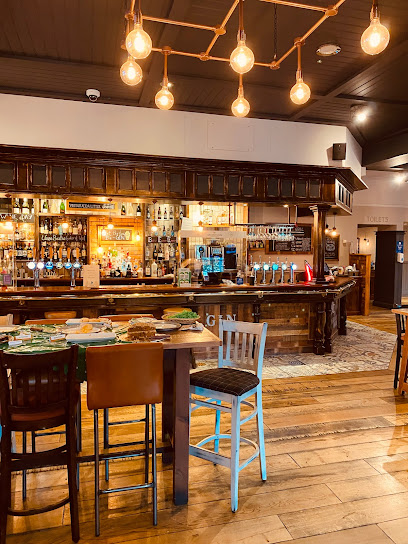
Harvester Ghillies Lair Aberdeen
Family-friendly British grill and bar in Aberdeen with hearty meals, unlimited salad bar, and scenic riverside outdoor seating.
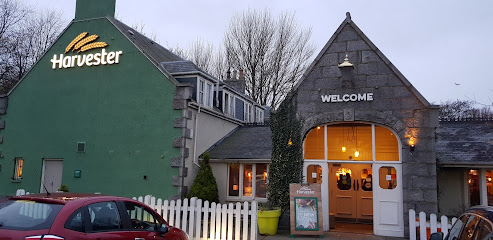
Amarone
Elegant Italian dining with vibrant atmosphere and attentive service in the heart of Aberdeen’s Union Street.
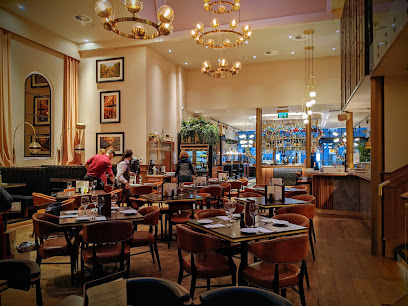
The Silver Darling
Experience fresh Scottish seafood with stunning Aberdeen Harbour views in a historic waterfront setting at The Silver Darling.
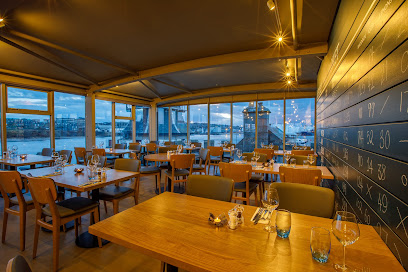
Rustico
Experience authentic Italian flavors and cozy 1950s trattoria charm in the heart of Aberdeen at Rustico.
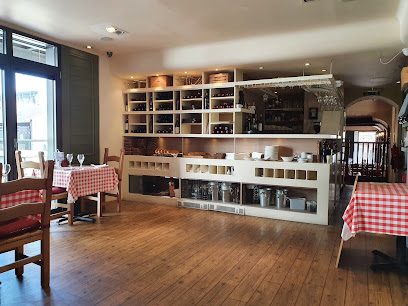
Wild Boar
Historic Aberdeen pub offering classic British fare, real ales, live entertainment, and a warm, inviting atmosphere in the city center.
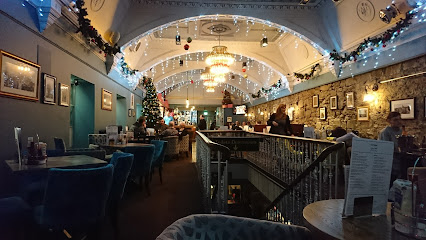
Mi Amore
Experience authentic Italian flavors and cozy trattoria charm in the heart of Aberdeen at Mi Amore.
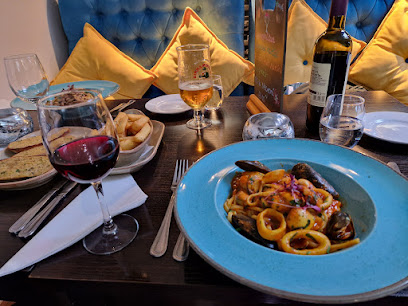
No.10 Bar and Restaurant
Sophisticated subterranean dining in Aberdeen’s West End, blending refined British cuisine with a vibrant bar and cozy atmosphere.
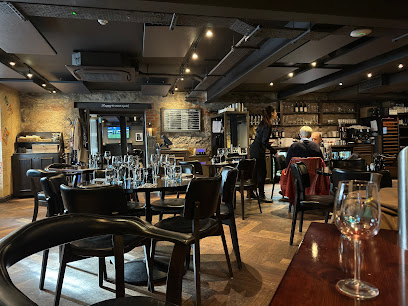
Maggie's Grill
Savor authentic Southern BBQ and Cajun soul food with generous portions in the heart of Aberdeen’s Marischal Square.
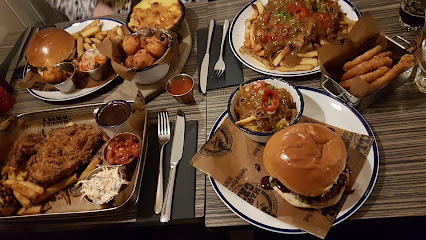
Madame Mew's
Experience authentic Thai flavors and vibrant atmosphere with generous portions and great value in the heart of Aberdeen.
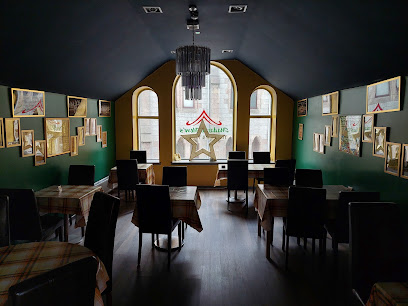
8848 Restaurant
Authentic Nepalese and Indian cuisine with modern flair in the heart of Aberdeen’s Union Street.
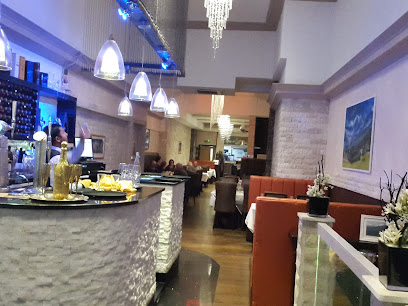
Ninety-Nine
Experience expertly crafted cocktails and vibrant modern bar food in the heart of Aberdeen’s lively social scene at Ninety-Nine.
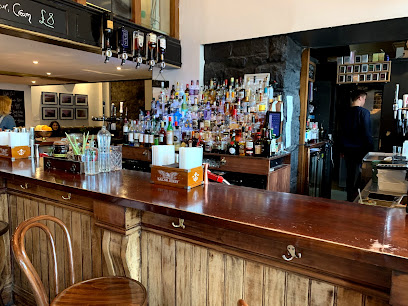
Chaophraya
Experience authentic and innovative Thai cuisine in Aberdeen’s historic and elegant dining landmark.
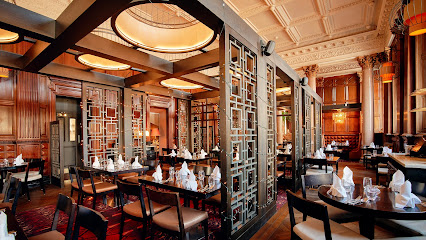
Markets, malls and hidden boutiques
The Range, Aberdeen
A vast homewares and lifestyle emporium nestled in Aberdeen’s vibrant beachfront leisure park, offering everything for your home and garden.
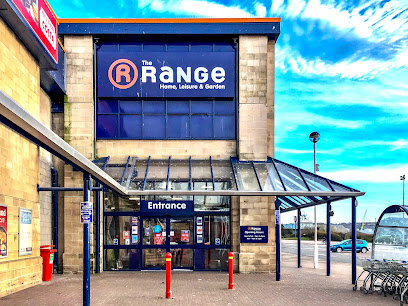
Hobbycraft Aberdeen
Discover a creative sanctuary in the heart of Aberdeen’s Union Square, offering expert-led workshops and a vast range of craft supplies.

Juniper
Discover unique gifts, stylish home furniture, and beautiful jewellery in a charming shop with a welcoming ambience in the heart of Aberdeen.
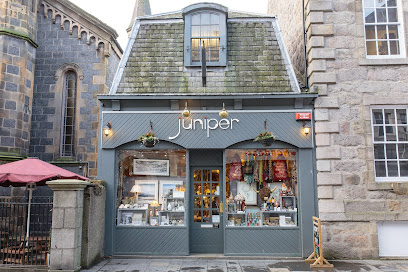
Scotland's Bothy
Discover authentic Scottish gifts, souvenirs, and custom T-shirts in the welcoming heart of Aberdeen at Scotland's Bothy.
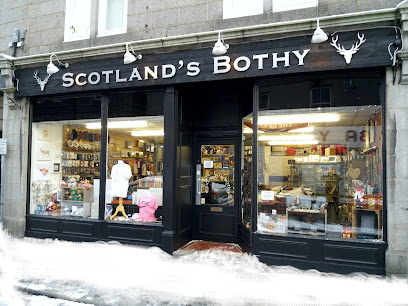
Flying Tiger Copenhagen
Discover quirky Danish design and playful everyday essentials at Flying Tiger Copenhagen in Aberdeen’s Trinity Centre.
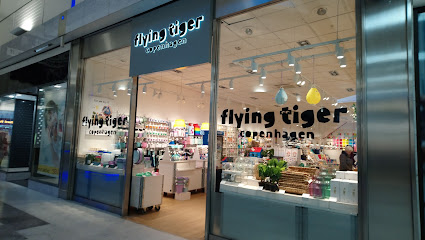
Menkind
Discover quirky gadgets and unique gifts at Menkind, the fun-filled store in Aberdeen’s vibrant Union Square Shopping Centre.
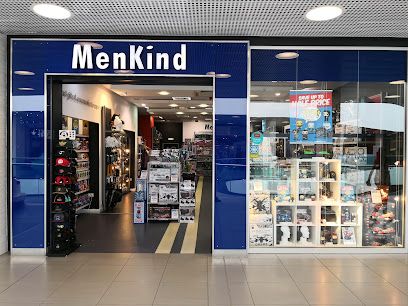
Tiger Lily Boutique
Discover elegant, versatile ladies' fashion with personalized service at Tiger Lily Boutique in Aberdeen’s stylish Chapel Street.
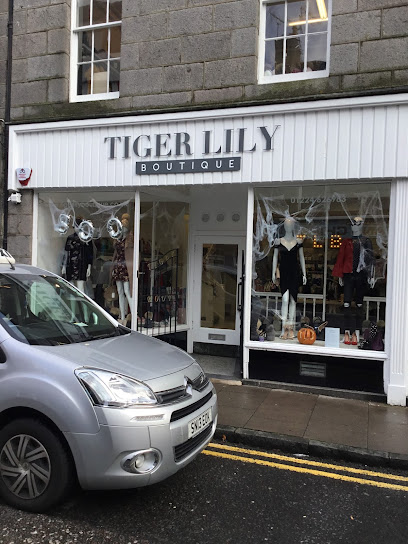
Kafka Mercantile
Independent Aberdeen retailer since 1990, curating artisanal clothing and footwear from distinctive international brands.
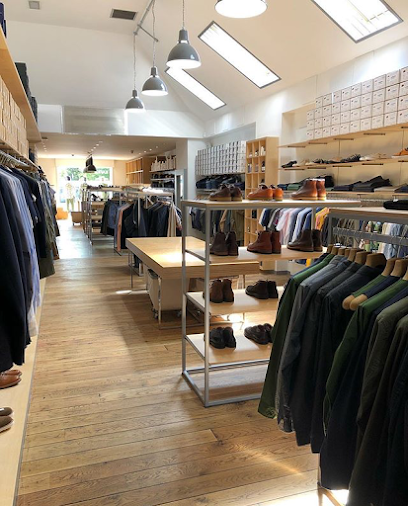
Oliver Bonas
Discover Oliver Bonas Aberdeen, a stylish boutique blending British design with unique fashion, homeware, and gifts in a historic city setting.
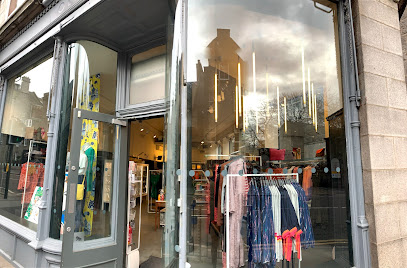
The Closet
Discover timeless style and curated vintage treasures at The Closet, Aberdeen’s boutique for authentic vintage clothing and accessories.
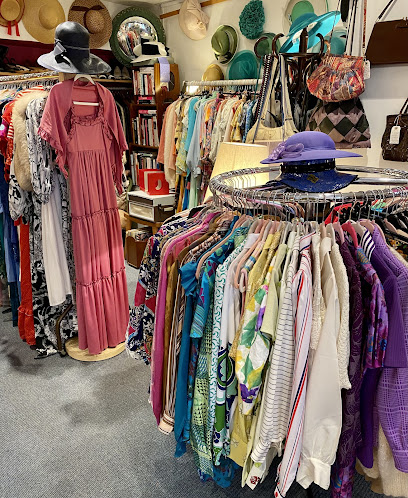
White Stuff Aberdeen
Discover British charm and sustainable style at White Stuff Aberdeen, your boutique for distinctive casual fashion and accessories.
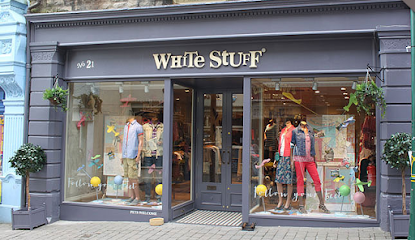
Next
Discover stylish family fashion and homeware at Next, located in Aberdeen’s vibrant Union Square Shopping Centre.
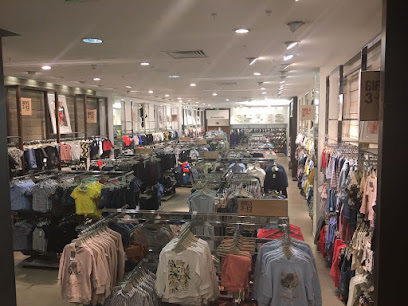
Annie Mo's
Discover authentic rustic furniture and unique home accessories at Annie Mo's, Aberdeen's independent shop with over 30 years of heritage.
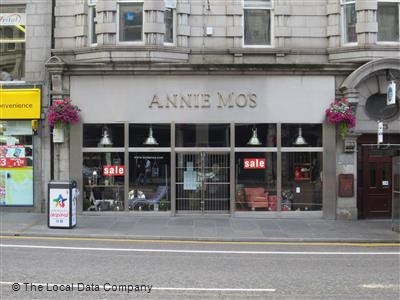
Frantiques
Waterfront antique shop brimming with maritime treasures and eclectic vintage finds.
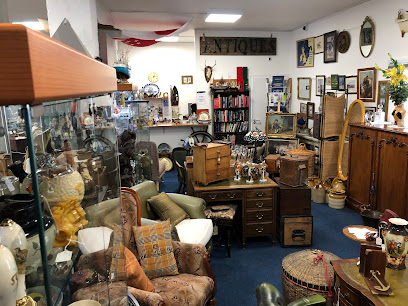
Beyond Vintage
Discover timeless vintage fashion treasures and classic Levi's in the heart of Aberdeen’s vibrant shopping scene.
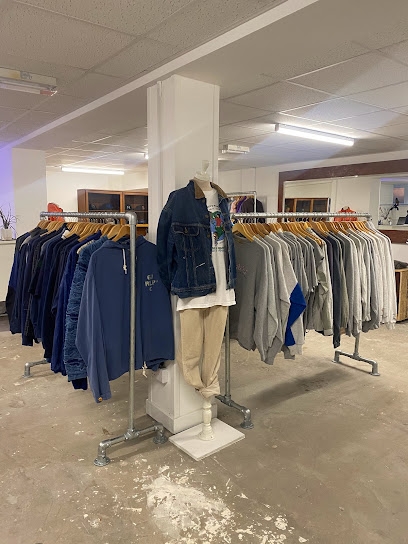
Essential bars & hidden hideouts
Slains
A gothic pub in a converted church, blending Aberdeen’s history with spooky charm and lively nightlife on Belmont Street.
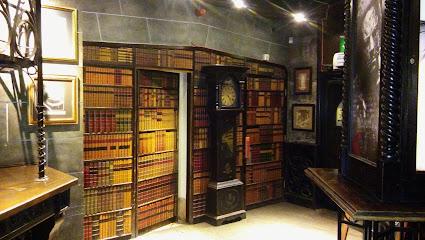
The Triplekirks
Aberdeen’s lively pub and sports bar offering boozy brunches, live games, pub quizzes, and a welcoming atmosphere for all.
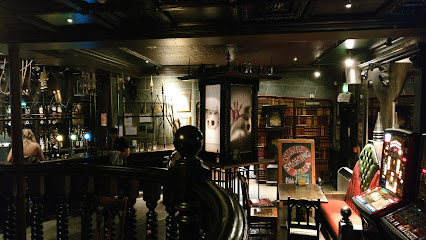
Revolution Aberdeen
Energetic two-level cocktail bar and restaurant on Belmont Street with crafted drinks, seasonal food, and scenic outdoor deck views over Union Terrace Garden.
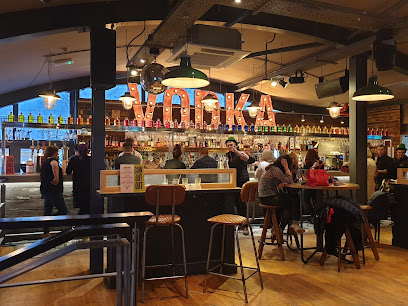
Ma Cameron's
Experience authentic Scottish pub culture with great food, friendly service, and a lively atmosphere at Ma Cameron's in Aberdeen.
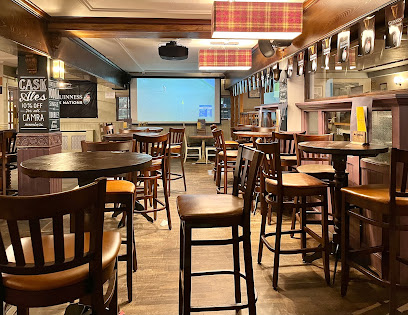
All Bar One Aberdeen
A stylish wine bar in Aberdeen’s Marischal Square offering modern British cuisine, extensive drinks, and a vibrant social atmosphere.
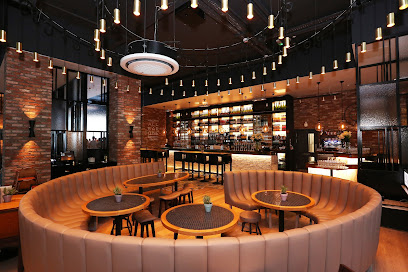
Revolución de Cuba Aberdeen
Experience the vibrant Cuban nightlife and Latin-inspired tapas in the heart of Aberdeen’s Academy Centre Courtyard.
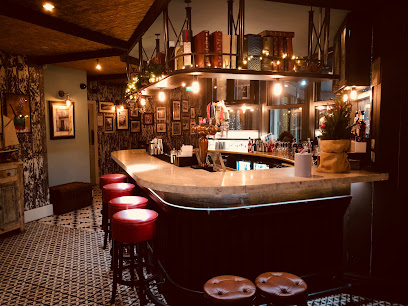
Soul
Vibrant cocktail bar and restaurant in Aberdeen’s city center, blending modern urban style with hearty food and creative drinks.
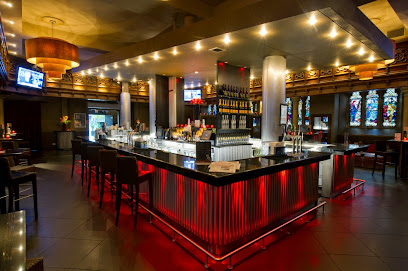
The Stag
A lively and welcoming city-centre pub in Aberdeen, offering great drinks, entertainment, and a friendly atmosphere every day from noon to midnight.
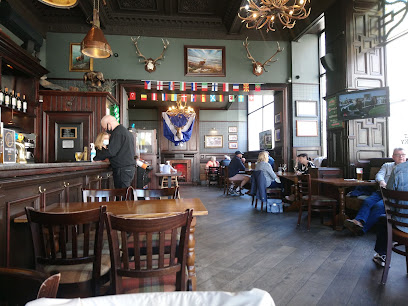
Krakatoa
A vibrant tiki-themed dive bar in Aberdeen offering eclectic drinks, live music, and a quirky, welcoming atmosphere from afternoon till late night.
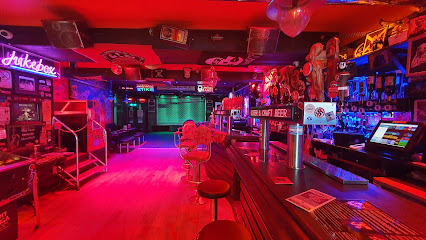
Ninety-Nine
Discover Aberdeen’s eclectic cocktail bar and kitchen where inventive drinks meet fresh, seasonal food in a warm, welcoming atmosphere.
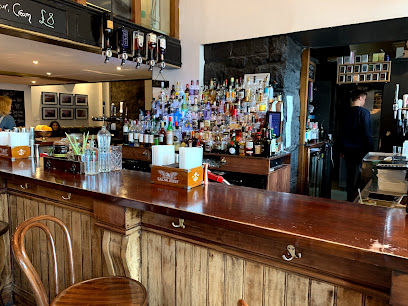
Northern Bar
A vibrant Aberdeen pub blending heritage, live sports, hearty food, and community spirit in a welcoming setting.
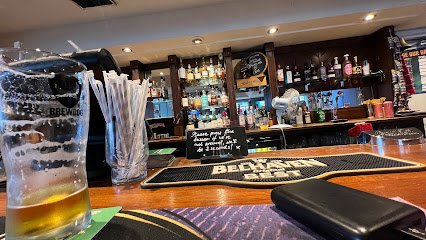
The Tippling House
A stylish cocktail bar and restaurant in Aberdeen blending inventive drinks with a cozy, speakeasy atmosphere.
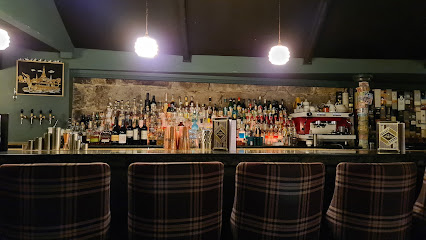
The Spiritualist Aberdeen
Discover vibrant cocktails and stylish dining in the heart of Aberdeen at The Spiritualist, where creativity meets chic atmosphere.
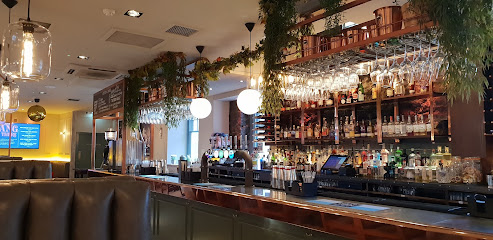
College Bar
Aberdeen’s iconic sports and cocktail bar blending historic charm with modern entertainment and fresh local brews.
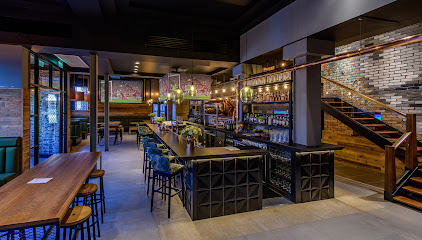
Local Phrases
-
- HelloFit like
[fit laik] - GoodbyeCheerio
[cheerio] - YesAye
[aye] - NoNae
[nae] - Please/You're welcomePlease - Aye nae bother
[please - aye nae bother] - Thank youCheers
[cheers] - Excuse me/SorrySorry
[sorry] - How are you?Fit like?
[fit laik?] - Fine. And you?A'm braw. An you?
[am braw. an you?] - Do you speak English?Div ye speak English?
[div ye speak english?] - I don't understandA dinnae ken
[a dinnae ken]
- HelloFit like
-
- I'd like to see the menu, pleaseA wid like tae see the menu, please
[a wid like tae see the menu, please] - I don't eat meatA dinnae eat meat
[a dinnae eat meat] - Cheers!Slàinte mhath!
[slainte va] - I would like to pay, pleaseA wid like tae pay, please
[a wid like tae pay, please]
- I'd like to see the menu, pleaseA wid like tae see the menu, please
-
- Help!Help!
[help] - Go away!Awa ye go!
[awa ye go!] - Call the Police!Phone the Polis!
[phone the polis!] - Call a doctor!Phone a doctor!
[phone a doctor!] - I'm lostA'm tint
[am tint] - I'm illA'm wabbit
[am wabbit]
- Help!Help!
-
- I'd like to buy...A wid like tae buy...
[a wid like tae buy...] - I'm just lookingA'm juist haein a keek
[am just haein a keek] - How much is it?Hoo muckle is it?
[hoo muckle is it?] - That's too expensiveThat's ower dear
[that's ower dear] - Can you lower the price?Can ye gie's a better price?
[can ye gie's a better price?]
- I'd like to buy...A wid like tae buy...
-
- What time is it?Fit time is it?
[fit time is it?] - It's one o'clockIt's yin o'clock
[it's yin o'clock] - Half past (10)Hawf past ten
[hawf past ten] - MorningMornin'
[mornin'] - AfternoonEfternuin
[efternuin] - EveningE'enin
[e'enin] - YesterdayYestreen
[yestreen] - TodayThe day
[the day] - TomorrowThe morn
[the morn] - 1Yin
[yin] - 2Twa
[twa] - 3Three
[three] - 4Fower
[fower] - 5Fife
[fife] - 6Sax
[sax] - 7Seiven
[seiven] - 8Aucht
[aucht] - 9Nine
[nine] - 10Ten
[ten]
- What time is it?Fit time is it?
-
- Where's a/the...?Whaur's a/the...?
[whaur's a/the...?] - What's the address?Fit's the address?
[fit's the address?] - Can you show me (on the map)?Can ye shaw me (oan the map)?
[can ye shaw me (oan the map)?] - When's the next (bus)?Whan's the neist (bus)?
[whan's the neist (bus)?] - A ticket (to ....)A ticket (tae ....)
[a ticket (tae ....)]
- Where's a/the...?Whaur's a/the...?
History of Aberdeen
-
Aberdeen, often referred to as the 'Granite City' due to its many enduring grey-stone buildings, has a rich history dating back to the early medieval period. The city's roots can be traced to the Pictish settlements, with evidence of habitation from as early as 6000 BC. By the 12th century, Aberdeen had developed into an important trading hub, with King David I granting the city its first charter in 1179, promoting commerce and industry.
-
During the late 13th and early 14th centuries, Aberdeen found itself embroiled in the Wars of Scottish Independence. The city was captured and recaptured multiple times, with significant events including the Battle of Aberdeen in 1308. Robert the Bruce, after retaking the city, ordered the destruction of Aberdeen Castle to prevent it from falling back into enemy hands. This period saw Aberdeen solidify its status as a stronghold of Scottish resistance.
-
The 16th century brought religious upheaval to Aberdeen with the Scottish Reformation. The city was a focal point for Protestant reformers, leading to the establishment of King's College in 1495, which later became part of the University of Aberdeen. The Covenanting Wars of the 17th century saw further conflict, with Aberdeen being seized by Covenanters in 1639, reflecting the city's strategic importance and the turbulent religious and political landscape of the time.
-
The 18th century marked a period of intellectual growth and industrial expansion for Aberdeen. The city's educational institutions flourished, with figures like James Gregory and George Campbell contributing to the Scottish Enlightenment. The discovery of granite in the region led to a boom in the construction industry, with Aberdeen granite being exported worldwide for its quality and durability. This era also saw the construction of notable landmarks such as Marischal College in 1593 and the completion of Union Street in the early 19th century.
-
Aberdeen played a crucial role during both World Wars, serving as a strategic port and industrial center. During World War I, the city's shipyards produced vessels for the Royal Navy, while World War II saw Aberdeen suffering from multiple air raids due to its importance in the North Sea. The city’s resilience during these challenging times is commemorated in various war memorials scattered throughout Aberdeen.
-
The discovery of North Sea oil in the late 20th century transformed Aberdeen into the 'Oil Capital of Europe.' The 1970s oil boom brought unprecedented economic growth and international attention to the city, leading to the establishment of numerous oil-related businesses and a surge in population. The Aberdeen Maritime Museum offers a comprehensive look into the city’s maritime history and the impact of the oil industry on its development.
-
Today, Aberdeen is a vibrant city known for its blend of historical charm and modern innovation. The city is home to two major universities, the University of Aberdeen and Robert Gordon University, fostering a strong academic community. Aberdeen’s cultural scene thrives with annual events such as the Aberdeen International Youth Festival and the Nuart Aberdeen street art festival. The city's commitment to preserving its rich heritage while embracing technological advancements ensures its continued significance on both national and global stages.
Aberdeen Essentials
-
Aberdeen is well-connected by air, rail, and road. The Aberdeen International Airport (ABZ) is located about 7 miles northwest of the city centre and offers domestic and international flights. From the airport, you can take a taxi, bus, or car rental to reach the city centre. Aberdeen is also accessible by train with regular services from major UK cities including London, Edinburgh, and Glasgow. If you prefer driving, the A90 and A96 roads link Aberdeen to other parts of Scotland.
-
Aberdeen has a comprehensive public transportation system that includes buses and trains. First Bus operates the majority of the local bus services within the city and surrounding areas. The Aberdeen railway station is centrally located and connects to various destinations. Taxis are readily available, and ride-sharing services like Uber also operate in the city. For exploring the city at your own pace, consider renting a bicycle or a car.
-
The official currency in Aberdeen, as in the rest of the United Kingdom, is the British Pound Sterling (£). Credit and debit cards are widely accepted in hotels, restaurants, and shops. Contactless payments are also common. ATMs are plentiful throughout the city, so withdrawing cash is easy. However, it's always good to carry some cash for smaller establishments and local markets.
-
Aberdeen is generally a safe city for tourists. However, it is advisable to take standard precautions such as avoiding poorly-lit areas at night and keeping an eye on your belongings in crowded places. Areas like Torry and Tillydrone have higher crime rates compared to other parts of the city, so exercise additional caution if you find yourself in these neighbourhoods.
-
In case of an emergency, dial 999 for police, fire, or medical assistance. The Aberdeen Royal Infirmary is the main hospital and provides comprehensive medical services. For less urgent medical issues, there are numerous pharmacies throughout the city where you can seek advice and purchase medications. It is advisable to have travel insurance that covers medical emergencies.
-
Fashion: Do dress in layers as the weather can be unpredictable. Don't wear overly casual attire in upscale restaurants. Religion: Do respect local customs; some churches may require modest dress. Public Transport: Do offer your seat to elderly passengers and don't talk loudly on your phone. Greetings: Do greet people with a friendly 'hello' or 'hi'. A firm handshake is also common. Eating & Drinking: Do try local delicacies like Cullen skink and Aberdeen Angus beef. Don't overindulge in alcohol in public places, as it can be frowned upon.
-
To experience Aberdeen like a local, visit the bustling Union Street for shopping and dining. Take a stroll along the historic Footdee (Fittie) area to see quaint fishing cottages. Don’t miss the local farmers’ markets held at Belmont Street on the last Saturday of every month, where you can buy fresh produce and artisanal goods. For a unique experience, visit the Aberdeen Maritime Museum to learn about the city's rich maritime history.
Trending Landmark in Aberdeen
-
Dunnottar Castle
-
Stonehaven Harbour
-
Footdee
-
William Wallace Statue
-
St Mary of the Assumption Cathedral, Aberdeen
-
Bridge of Dee
-
Piper Alpha Memorial Garden
-
Marischal College
-
Old Slains Castle (Not Dracula castle)
-
St. Andrew Cathedral Church, Aberdeen
-
Duke Of Gordon Monument
-
Edward VII Statue
-
The Powis Gates
-
Barra Hill
-
Greyfriars Church
Nearby Cities to Aberdeen
-
Things To Do in Dundee
-
Things To Do in Inverness
-
Things To Do in Edinburgh
-
Things To Do in Stirling
-
Things To Do in Glasgow
-
Things To Do in Newcastle upon Tyne
-
Things To Do in Durham
-
Things To Do in Ramsey
-
Things To Do in Kirk Michael
-
Things To Do in Laxey
-
Things To Do in York
-
Things To Do in Onchan
-
Things To Do in Peel
-
Things To Do in Douglas
-
Things To Do in Belfast
















